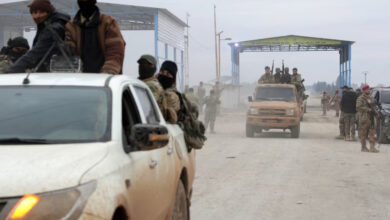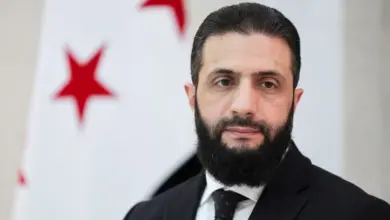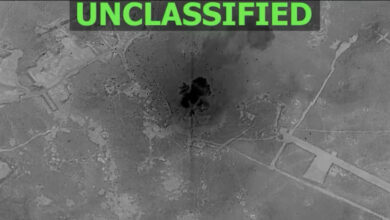
BEIRUT — An advance team of six UN observers arrived in the Syrian capital to monitor the country’s cease-fire, which appeared to be rapidly unraveling Monday as regime forces pounded the opposition stronghold of Homs with artillery shells and mortars, activists said.
Even though the overall level of violence has dropped significantly, government attacks over the weekend raised new doubts about President Bashar al-Assad’s commitment to special envoy Kofi Annan’s plan to end 13 months of violence and launch talks on Syria’s political future.
The advance team of UN monitors arrived in Damascus Sunday night. Annan’s spokesperson said the team will be led by Moroccan Colonel Ahmed Himmiche, and that the remaining 25 observers are expected to arrive in the coming days.
Fawzi said in a statement issued in Geneva on Monday that the mission “will start with setting up operating headquarters, and reaching out to the Syrian government and the opposition forces so that both sides fully understand the role of the UN observers.”
“We will start our mission as soon as possible and we hope it will be a success,” Himmiche told The Associated Press as he left a Damascus hotel along with his team Monday morning.
Two activist groups, the Local Coordination Committees and the British-based Syrian Observatory for Human Rights, said intense shelling of Homs resumed early Monday for the third consecutive day.
“Government forces trying to take control of Homs neighborhoods are pounding the districts of Khaldiyeh and Bayada with mortar fire,” the Observatory said.
Both groups said two people were killed in Hama in central Syria on Monday when security forces opened fire on their car.
Western countries and the Syrian opposition are skeptical Assad will abide by Annan’s six-point plan for a cease-fire and the weekend pounding of Homs along with scattered violence in other areas has reinforced those doubts.
Assad accepted the truce deal at the prodding of his main ally, Russia, but his compliance has been limited. He has halted shelling of rebel-held neighborhoods, with the exception of Homs, but ignored calls to pull troops out of urban centers, apparently for fear of losing control over a country his family has ruled for four decades. Rebel fighters have also kept up attacks, including shooting ambushes.
The international community hopes UN observers will be able to stabilize the cease-fire, which formally took effect Thursday. The UN Security Council approved the observer mission unanimously on Saturday. A larger team of 250 observers requires more negotiations between the UN and the Syrian government next week.
UN Secretary General Bank Ki-moon expressed serious concern with the Syrian government’s continued shelling of Homs and said “the whole world is watching with skeptical eyes” whether the cease-fire can be sustained.
“It is important — absolutely important that the Syrian government should take all the measures to keep this cessation of violence,” he told reporters in Brussels after meeting Belgian Prime Minister Elio Di Rupo on Sunday.
Ban said he hoped that once the full monitoring team is on the ground “there will be calm and stability and peace without any violence.”
Since the cease-fire began, each side has accused the other of violations.
Syria’s state-run news agency SANA has reported rebel attacks targeting checkpoints and army officers, while opposition activists said regime troops and their allied shabiha militiamen continued arrest raids and mistreatment of those in detention.




